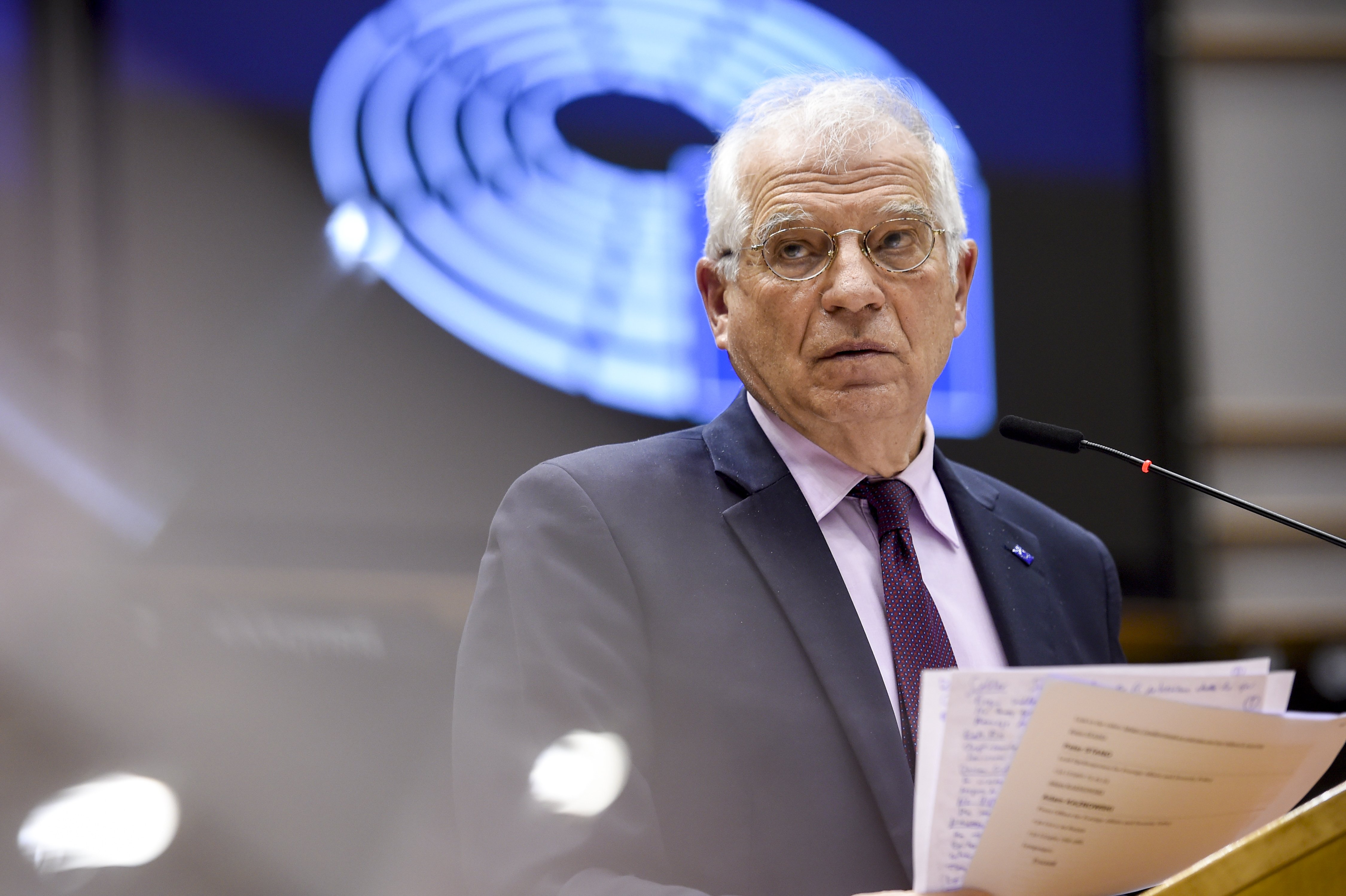The foreign policy high representative of the European Union, Josep Borrell, said on Thursday about his controversial visit to Russia in February that he did not go there to "discuss whether the situation" of jailed Catalan pro-independence leader Oriol Junqueras is "the same "as that of the Russian opponent Alexei Navalni." At an event organized by the Spanish think tank Real Instituto Elcano, Borrell said that the Russian foreign minister, Sergei Lavrov, "warned" him that he would mention the Catalan affair if the EU commissioner spoke of Navalny to “demonstrate” that the European Union “also has internal problems of human rights and freedoms.” In this regard, the foreign policy chief stated that he knew that talking about the Russian opponent “would not come for free”.
"He made it clear to me that Russia does not accept being presented with human rights issues. For Putin, it is an existential issue," said Borrell, who acknowledged that the the European Union's ability to "transform Russia" internally is "limited". "We need to have a complex relationship with them. Contain them and at the same time work with them on issues where we need their collaboration," he insisted.
In fact Sergey Lavrov had already acknowledged in an interview on the live YouTube channel Solovyov that he had warned Borrell that if he spoke about the Aleksei Navalni affair, the veteran Russian leader would bring up the situation of the nine Catalan political prisoners.
"I notified the High Representative that if he presented this matter from this angle during a news conference, I would respond by mentioning the Catalans sentenced to 12 years or more in prison for organising the referendum on Catalonia’s independence. They were accused of organising this referendum, but no one presented a single piece of evidence, nothing even remotely close to the facts. That's what happened."
The conflict with Russia
In early February, Borrell visited Russia, where, in an awkward press conference, Lavrov accused the EU of acting "arrogantly" and "rudely" in the face of the conviction of the opposition voice Navalni, while drawing parallels between this case and that of the jailed pro-independence leaders.
Shortly after the meeting, Russia announced the expulsion of three diplomats for allegedly participating in demonstrations protesting at Navalni's imprisonment, a fact that Brussels has so far denied.
Main image: High representative of the European Union on foreign policy, Josep Borrell, giving a speech. / ACN

